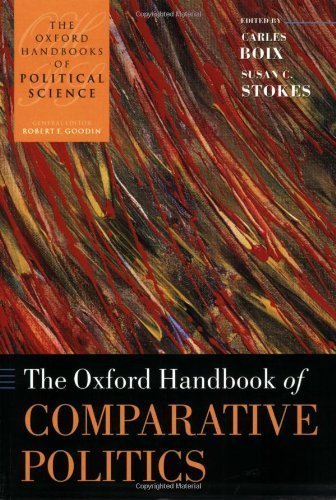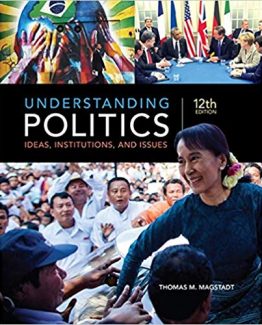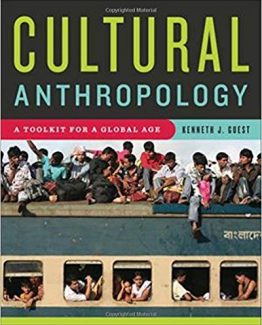The Oxford Handbook of Comparative Politics by Carles Boix, ISBN-13: 978-0199566020
[PDF eBook eTextbook]
- Publisher: Oxford University Press; Illustrated edition (September 7, 2009)
- Language: English
- 1040 pages
- ISBN-10: 019956602X
- ISBN-13: 978-0199566020
The Oxford Handbook of Comparative Politics offers a critical survey of the field of empirical political science through the collection of a set of chapters written by 48 top scholars in the discipline of comparative politics. Part I includes chapters surveying the key research methodologies employed in comparative politics (the comparative method; the use of history; the practice and status of case-study research; the contributions of field research) and assessing the possibility of constructing a science of comparative politics. Parts II to IV examine the foundations of political order: the origins of states and the extent to which they relate to war and to economic development; the sources of compliance or political obligation among citizens; democratic transitions, the role of civic culture; authoritarianism; revolutions; civil wars and contentious politics. Parts V and VI
explore the mobilization, representation and coordination of political demands. Part V considers why parties emerge, the forms they take and the ways in which voters choose parties. It then includes chapters on collective action, social movements and political participation. Part VI opens up with essays on the mechanisms through which political demands are aggregated and coordinated. This sets the agenda to the systematic exploration of the workings and effects of particular institutions: electoral systems, federalism, legislative-executive relationships, the judiciary and bureaucracy. Finally, Part VII is organized around the burgeoning literature on macropolitical economy of the last two decades.
Table of Contents:
Part I: THEORY AND METHODOLOGY
1. The Logic of Comparison, R. Franzese
2. Historical Inquiry and Comparative Politics, J. Mahoney and C. Villegas
3. Case Studies and Comparative Politics, John Gerring
4. Field Research, Elisabeth Wood
5. Is the Science of Comparative Politics Possible?, A. Przeworski
6. From Case Studies to Social Science: A Strategy for Political Research, R. H. Bates
7. Collective Action Theory, E. Ostrom
Part II: STATES AND STATE FORMATION: POLITICAL CONSENT
8. War, Trade and State Formation, H. Spruyt
9. Compliance, Consent and Legitimacy, R. Hardin
10. National Identity, L. Greenfield and J. Eastwood
11. Nationalism and National Movements, A. Varshney
Part III. POLITICAL REGIMES AND TRANSITIONS
12. Mass Beliefs in Comparative Politics, C. Welzel and R. Inglehart
13. Democratization Theory, B. Geddes
14. Democracy and Civic Culture, P. Sabetti
15. Authoritarianism and Dictatorships, R. Wintrobe
Part IV: POLITICAL INSTABILITY, POLITICAL CONFLICT
16. Revolutions, S. Pincus
17. Civil Wars, S. Kalyvas
18. Social Movements and Contentious Politics, S. Tarrow and Ch. Tilly
19. Theories and Mechanisms of Contentious Politics: Activists and Academics on Globalized Protest Movements, M. Lichbach and H. de Vries
Part V: MASS POLITICAL MOBILIZATION
20. Emergence of Parties, C. Boix
21. Party Systems, H. Kitschelt
22. Parties and Voters in Industrial Democracies, A. Wren and K.M. McElwain
23. Parties and Voters in Emerging Democracies, F. Hagopian
24. Models of Programmatic and Clientelistic Parties, S. Stokes
25. Political Participation, P. Norris
Part VI: PROCESSING POLITICAL DEMANDS
26. Preference Aggregation. Spatial Models, G. Bingham Powell
27. Electoral Systems Description, R. Taagapera
28. Division of Powers. Presidentialism, D. Samuels
29. Judiciary, John Ferejohn, Frances Rosenbluth and Charles Shipan
30. Federalism, Pablo Beramendi
31. Coalition Theory. Government Formation, K. Strom and Benjamin Nyblade
Part VII: GOVERNANCE IN COMPARATIVE PERSPECTIVE
32. The Economy and Voting, R. Dutch
33. Political Business Cycles, J. Alt and Shanna Rose
34. Welfare State, I. Mares
35. The Political Economy of Development, Phil Keefer
36. Political Accountability Corruption, J.M. Maravall
37. Economic Transitions, T. Frye
Part I. INTRODUCTION
1. Introduction, Carles Boix & Susan C. Stokes
Part II. THEORY AND METHODOLOGY
2. Multicausality, Context-Conditionality, and Endogeneity in Comparative Politics, Robert J. Franzese Jr
3. Historical Inquiry and Comparative Politics, James Mahoney & Celso M. Villegas
4. The Case Study: What it is and What it Does, John Gerring
5. Field Research, Elisabeth Jean Wood
6. Is the Science of Comparative Politics Possible?, Adam Przeworski
7. From Case Studies to Social Science: A Strategy for Political Research, Robert H. Bates
8. Collective Action Theory, Elinor Ostrom
Part III. STATES AND STATE FORMATION: POLITICAL CONSENT
9. War, Trade and State Formation, Hendrick Spruyt
10. Compliance, Consent, and Legitimacy, Russell Hardin
11. National Identity, Liah Greenfeld & Jonathan Eastwood
12. Ethnicity and Ethnic Conflicy, Ashutosh Varshney
Part IV. POLITICAL REGIMES AND TRANSITIONS
13. Mass Beliefs, Christian Welzel & Ronald Inglehart
14. #What Causes Democratization?, Barbara Geddes
15. Democracy and Civic Culture, Filippo Sabetti
16. Dictatorship: Analytical Approaches, Ronald Wintrobe
Part V. POLITICAL INSTABILITY, POLITICAL CONFLICT
17. Rethinking Revolutions: A Neo-Torquevillian Perpective, Steven Pincus
18. Civil Wars, Stathis N. Kalyvas
19. Contentious Politics and Social Movements, Sidney Tarrow & Charles Tilly
20. Mechanisms of Globalized Protest Movements, Mark I. Lichbach & Helma G. E. de Vries
Part VI. MASS POLITICAL MOBILIZATION
21. Emergence of Parties and Party Systems, Carles Boix
22. Party Systems, Herbert Kitschelt
23. Voters and Parties, Anne Wren & Kenneth M. McElwain
24. Parties and Voters in Emerging Democracies, Frances Hagopian
25. Political Clientelism, Susan C. Stokes
26. Political Activism: New Challenges, New Opportunities, Pippa Norris
Part VII. PROCESSING POLITICAL DEMANDS
27. Aggregating and Representing Political Preferences, G. Bingham Powell Jr.
28. Electoral Systems, Rein Taagepera
29. Separation of Powers, David Samuels
30. Comparative Judicial Politics, John Ferejohn, Frances Rosenbluth & Charles Shipan
31. Federalism, Pablo Beramendi
32. Coalition Theory and Government Formation, Kaare Strom and Benjamin Nyblade
Part VIII. GOVERNANCE IN COMPARATIVE PERSPECTIVE
33. Comparative Studies of the Economy and the Vote, Raymond M. Duch
34. Context-Conditional Political Budget Cycles, James E. Alt & Shanna S. Rose
35. The Welfare State in Global Perpective, Matthew E. Carnes & Isabela Mares
36. The Poor Performance of Poor Democracies, Phil Keefer
37. Accountability and the Survival of Governments, Jose Maria Maravall
38. Economic Transformation and Comparative Politics, Timothy Frye
Carles Boix is Professor of Politics and Public Affairs at Princeton University. He has written the books Political Parties, Growth and Equality (1998) and Democracy and Redistribution (2003). Both books won the American Political Science Association Award for the best book on political economy. Boix has also published articles in leading journals including American Political Science Review, American Journal of Political Science, British Journal of Political Science, Journal of Law, Economics and Organization, International Organization, and World Politics.
Susan Stokes is a John S. Saden Professor of Political Science and director of the Yale Program on Democracy. Her research has been supported by the National Science Foundation, the Guggenheim Memorial Foundation, the MacArthur Foundation, the American Philosophical Society, and the Russell Sage
Foundation.
What makes us different?
• Instant Download
• Always Competitive Pricing
• 100% Privacy
• FREE Sample Available
• 24-7 LIVE Customer Support






Reviews
There are no reviews yet.